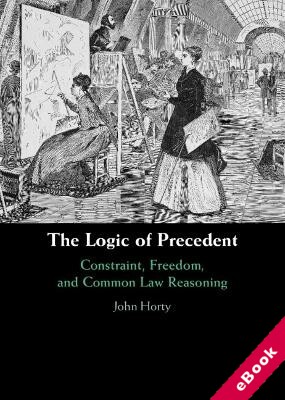
The device(s) you use to access the eBook content must be authorized with an Adobe ID before you download the product otherwise it will fail to register correctly.
For further information see https://www.wildy.com/ebook-formats
Once the order is confirmed an automated e-mail will be sent to you to allow you to download the eBook.
All eBooks are supplied firm sale and cannot be returned. If you believe there is a fault with your eBook then contact us on ebooks@wildy.com and we will help in resolving the issue. This does not affect your statutory rights.
Unlike statutory law, which relies on the explicit formulation of rules, common law is thought to emerge from a complex doctrine of precedential constraint, according to which decisions in earlier cases constrain later courts while still allowing these courts the freedom to address new situations in creative ways. Although this doctrine is applied by legal practitioners on a daily basis, it has proved to be considerably more difficult to develop an adequate theoretical account of the doctrine itself.
Drawing on recent work in legal theory, as well as AI and law, this book develops a new account of precedential constraint and the balance achieved in the common law between constraint and freedom. This account, which involves construction of a group priority ordering among reasons, is then applied to other topics including the semantics of open-textured predicates and the practice of making exceptions to general rules.
About the author:
John Horty is a Distinguished University Professor of philosophy at the University of Maryland, USA, with an affiliate appointment in the UM Institute for Advanced Computer Studies. His research spans several areas, including logic, artificial intelligence, ethics, epistemology, philosophy of language, and philosophy of law. Horty’s work aims to integrate these disciplines to address complex questions about human cognition, language and legal systems.